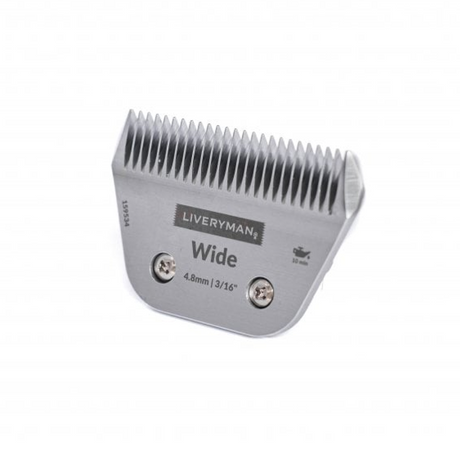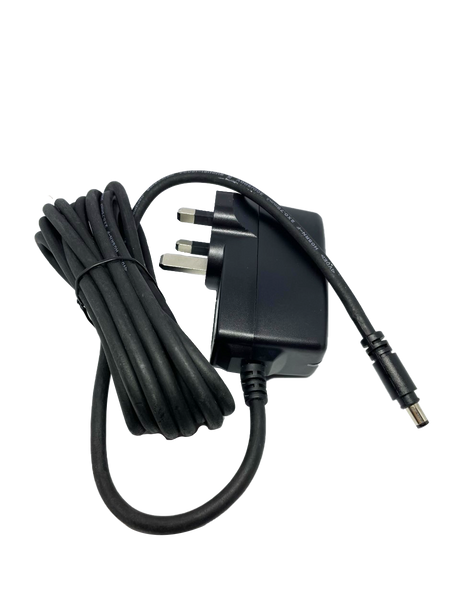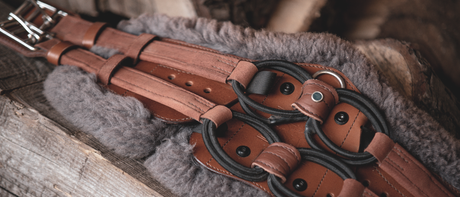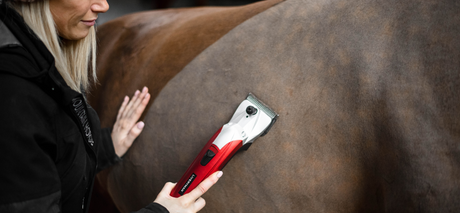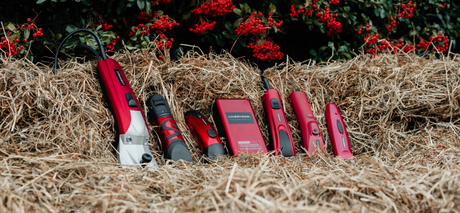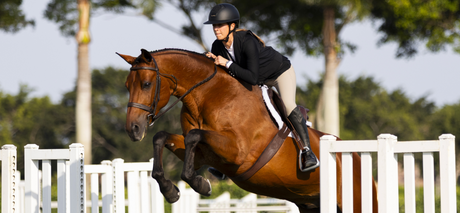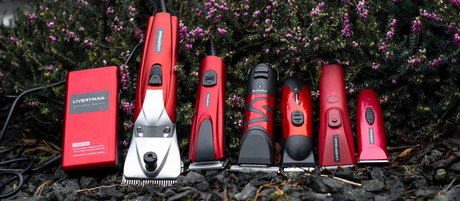Clipping is an important part of horse management, but the key to a smooth, professional finish starts before the clippers are even switched on. A clean, dry, dirt- and grease-free coat is the best canvas for any set of clippers. Not only does it improve the quality of the clip, but it also protects your equipment and ensures your horse’s comfort.

A freshly clipped coat. This horse was bathed the day before clipping, and the result is a perfectly smooth clip.
WHY DOES THE COAT NEED TO BE CLEAN?
Dirt, grit, and grease can quickly accumulate between the teeth of clipper blades, causing them to blunt far faster than when used on a clean coat. On average, a professional clipper can expect 5–10 full clips from one set of blades if the horse is clean. On a dirty coat, however, it may take as many as four sets of blades just to finish a single clip.
Once blades become blunt, they don’t cut cleanly—they pull and ‘chew’ at the hair instead. This is extremely uncomfortable for the horse, much like the sensation of having hair painfully waxed. Greasy or damp coats also accelerate blade wear and place extra strain on the motor.
When the motor is under strain, it often overheats:
-
Best-case scenario: the safety switch cuts out, and you must wait for the clippers to cool down before continuing.
-
Worst-case scenario: the motor burns out entirely, leaving you with the cost of a replacement.

This horse wasn’t bathed prior to clipping! The dirt and grease will clog is the blades, cause them to snag on the horse’s hair, which is uncomfortable.
WHAT HAPPENS IF MY HORSE IS NOT CLEAN?
Professional clippers will always request that your horse is clean before a clipping appointment. Typically, you’ll be advised to bathe your horse the day before so the coat has ample time to dry, as clippers cannot be used on wet hair. It’s also recommended to keep your horse stabled overnight and avoid turnout in arenas or sand pens, which can undo all your preparation.
Many professionals apply a penalty charge if a horse is excessively dirty and, in some cases, may even refuse to clip if the coat is too muddy, gritty, or damp. This policy protects both the horse’s comfort and the longevity of their equipment.
⚠️ Important: Never attempt to clip a wet horse. For best results, allow at least 24 hours after bathing to ensure the hair is completely dry down to the skin.

A very gritty and greasy coat. Notice the rough lines that have been left in the clipped areas. An experienced clipper will be able to get rid of most of these, but it would have been easily avoided with a clean coat.
DO I NEED TO BATH FOR EVERY TYPE OF CLIP?
If your horse is having a bib, Irish, trace, chaser, or blanket clip, a full bath isn’t always necessary—but the coat must still be clean and thoroughly groomed.
For a hunter or full clip, however, bathing is essential. These styles involve removing large areas of coat, and dirt and grease build up heavily along the topline and rump. Legs, in particular, are prone to grit and mud from the field, which makes clipping difficult and uncomfortable if not properly cleaned.
If your horse’s legs are being clipped, they must be washed thoroughly to ensure the blades can glide smoothly through the hair.

Horse‘s legs, particularly cob/heavily feathered legs can have a lot of grease and grit down at the roots of the hair.
WHAT IF I CAN’T BATH MY HORSE?
If bathing isn’t possible, the next best option is a very thorough grooming session. Expect to spend 30–60 minutes brushing your horse, using a variety of brushes and plenty of elbow grease to remove dirt, grease, and loose hair.
⚠️ Avoid shortcuts. Products such as dry shampoo, no-rinse shampoo, pig oil, or brushes dipped in oil should not be used as a substitute for cleaning. These leave residue in the coat, which clogs clipper blades and mixes with hair, reducing clipping quality and causing unnecessary wear on equipment.
WHAT IS THE BEST WAY BATH MY HORSE?
To prepare your horse properly for clipping, a thorough bath is the most effective method of removing dirt, grease, and build-up from the coat.
You will need:
-
Warm water
-
A clarifying shampoo
-
A plastic body brush or magic brush
-
A sweat scraper
Steps:
-
Wet the coat thoroughly.
-
Apply shampoo and use a brush (not a sponge) to work it deep into the coat. A brush can reach the roots of the hair, whereas a sponge only cleans the surface.
-
Pay extra attention to the topline, rump, and legs, as these areas accumulate the most dirt and grease.
-
Rinse thoroughly to ensure no shampoo residue remains, as leftover product can irritate the skin and interfere with clipping.
-
Remove excess water with a sweat scraper.
Always allow at least 24 hours for the coat to dry fully before clipping to ensure the hair is dry right down to the skin. Brush to remove any dust and dirt that may have accumulated.










